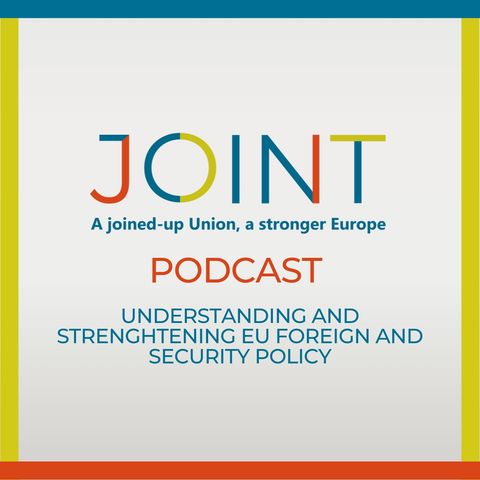
Contatti
Info
A podcast realised in the framework of the JOINT project, to understand and strengthen EU Foreign and Security Policy by analyzing a wide range of topics among which multipolar competition,...
mostra di piùJOINT project has received funding from the European Union’s Horizon 2020 research and innovation programme under grant agreement No 959143. These podcasts reflect only the view of the authors and the European Commission is not responsible for any use that may be made of the information it contains.

Understanding and Strengthening EU Foreign and security Policy in a Complex and Contested World
Understanding and Strengthening EU Foreign and security Policy in a Complex and Contested World
JOINT PROJECTA podcast realised in the framework of the JOINT project, to understand and strengthen EU Foreign and Security Policy by analyzing a wide range of topics among which multipolar competition,...
mostra di piùJOINT project has received funding from the European Union’s Horizon 2020 research and innovation programme under grant agreement No 959143. These podcasts reflect only the view of the authors and the European Commission is not responsible for any use that may be made of the information it contains.
Informazioni
| Autore | JOINT PROJECT |
| Organizzazione | Milena Di Nenno |
| Categorie | Notizie: approfondimenti |
| Sito | - |
| info@jointproject.eu |
Copyright 2024 - Spreaker Inc. an iHeartMedia Company
